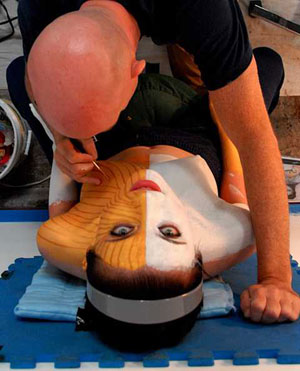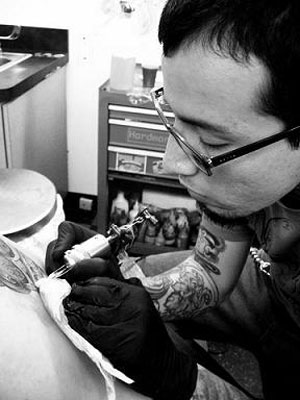Body Artist
Tasks & duties

Body artists perform either tattooing or body piercing, and may do some or all of the following:
-
explain the tattooing or piercing procedure to the client
-
make sure the person is certain about wanting a tattoo or piercing
-
help the client choose an image or jewellery
-
interpret the client's artistic ideas to form a suitable image for the individual
-
copy or design an image for clients
-
resize images to fit the body part it is going on, and make a stencil of the image
-
shave the area being tattooed or pierced and apply disinfectant to the skin
-
pierce the client's body part
-
put the stencil on to the skin and ensure it fits with the body part
-
solder the group of needles onto the needle bar
-
draw the outline, colouring and shadowing of the tattoo with inked needles
-
apply cream and antiseptic covers to the finished piercing or tattoo, after it has dried out
-
tell people how to properly care for the piercing or tattoo
-
ensure all sterilisation equipment is kept in good working order
-
ensure the studio and equipment meets with sterilisation, waste management, and health and safety standards
-
train people
Specialisations
Body artists may choose to specialise in tattooing or body piercing.
Skills & knowledge

Depending on their specialisation, body artists need to have:
-
knowledge of different artistic styles
-
knowledge of human anatomy
-
knowledge of health and safety standards and procedures
-
knowledge of infection control and how to recognise, prevent and remedy infections
-
knowledge of disinfectants and which ones to use on certain areas of skin
-
knowledge of first aid and good hygiene practices
-
good listening and communication skills
Business management skills are also useful if body artists run their own business.
Entry requirements
To become a body artist there are no specific entry requirements. Tattooists are trained on the job in an apprentice situation by experienced tattooists. There are no specific time limits for training and no formal qualifications are gained. They are usually unpaid while training.
Body piercers can also be trained on the job as apprentices. Some polytechnics offer courses on body piercing.
Secondary education
School Certificate or NCEA equivalent art, economics and health science are useful subjects.
Tertiary education
Art and small business courses may be useful for body artists.
Useful experience
Useful experience for body artists includes work in the visual arts and hands-on arts and crafts jobs. Experience in retail or customer services is also useful.
Related courses
Beauty Therapy
For more information, please refer to Career Services.
Document Actions
